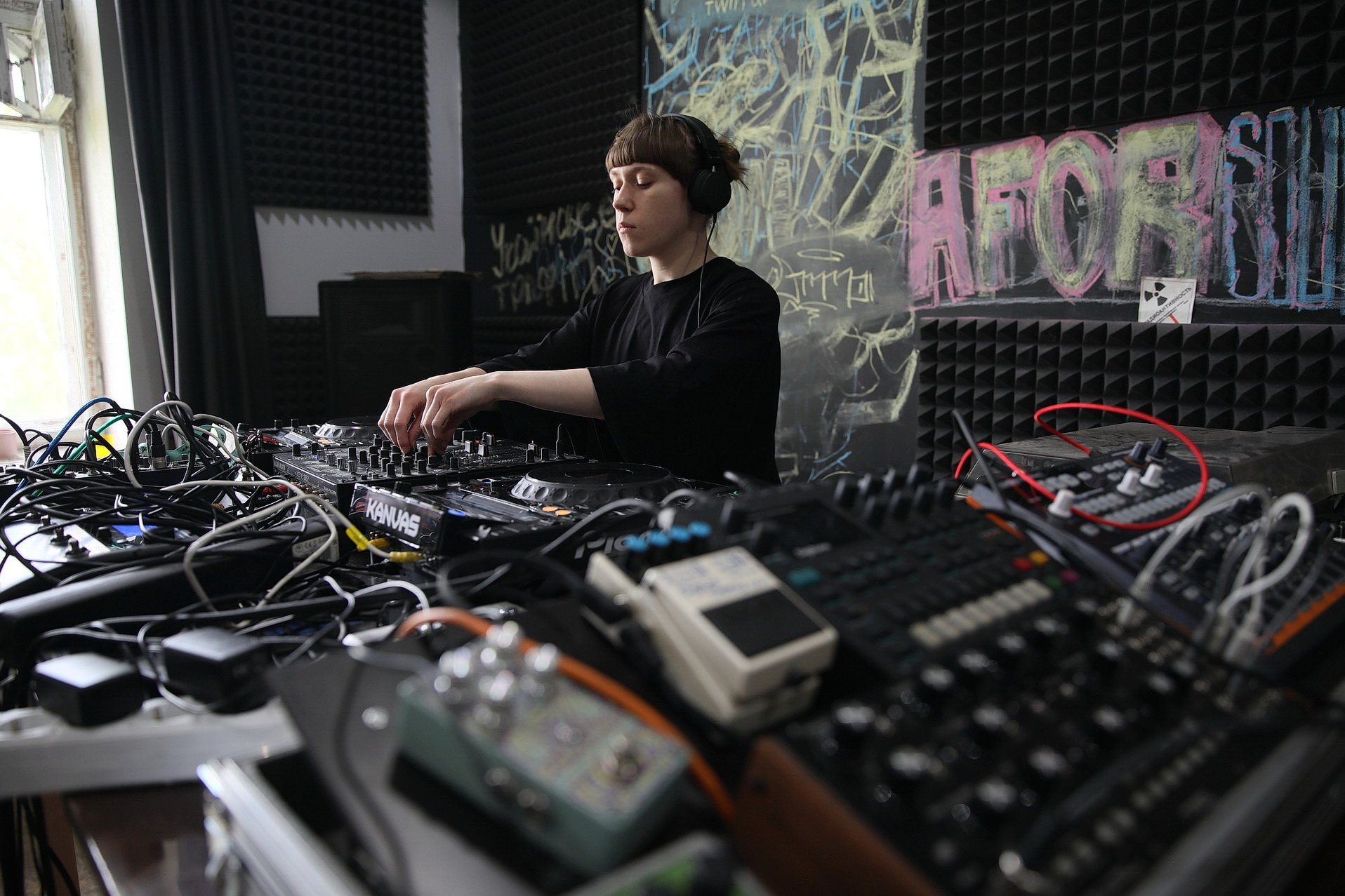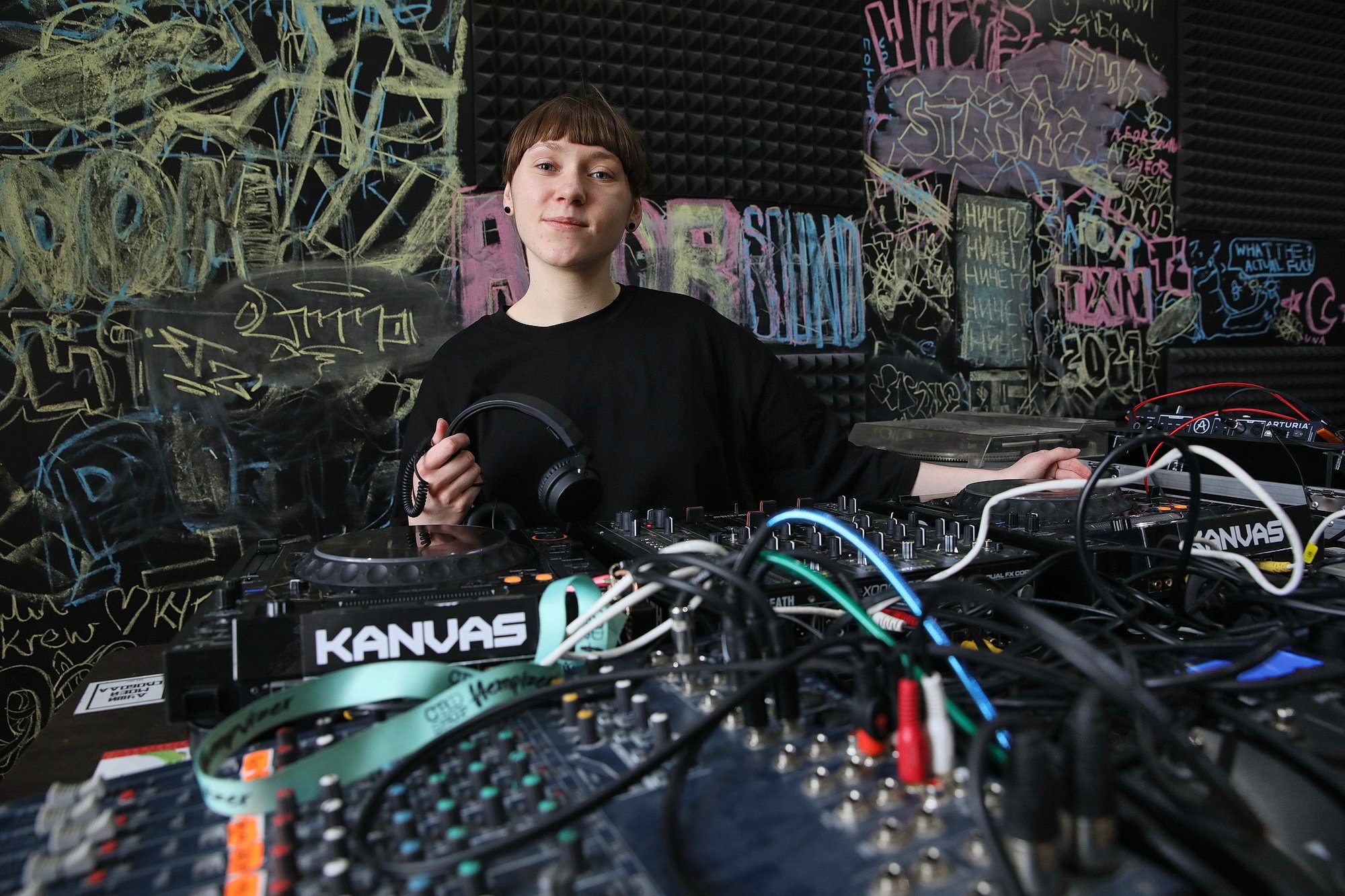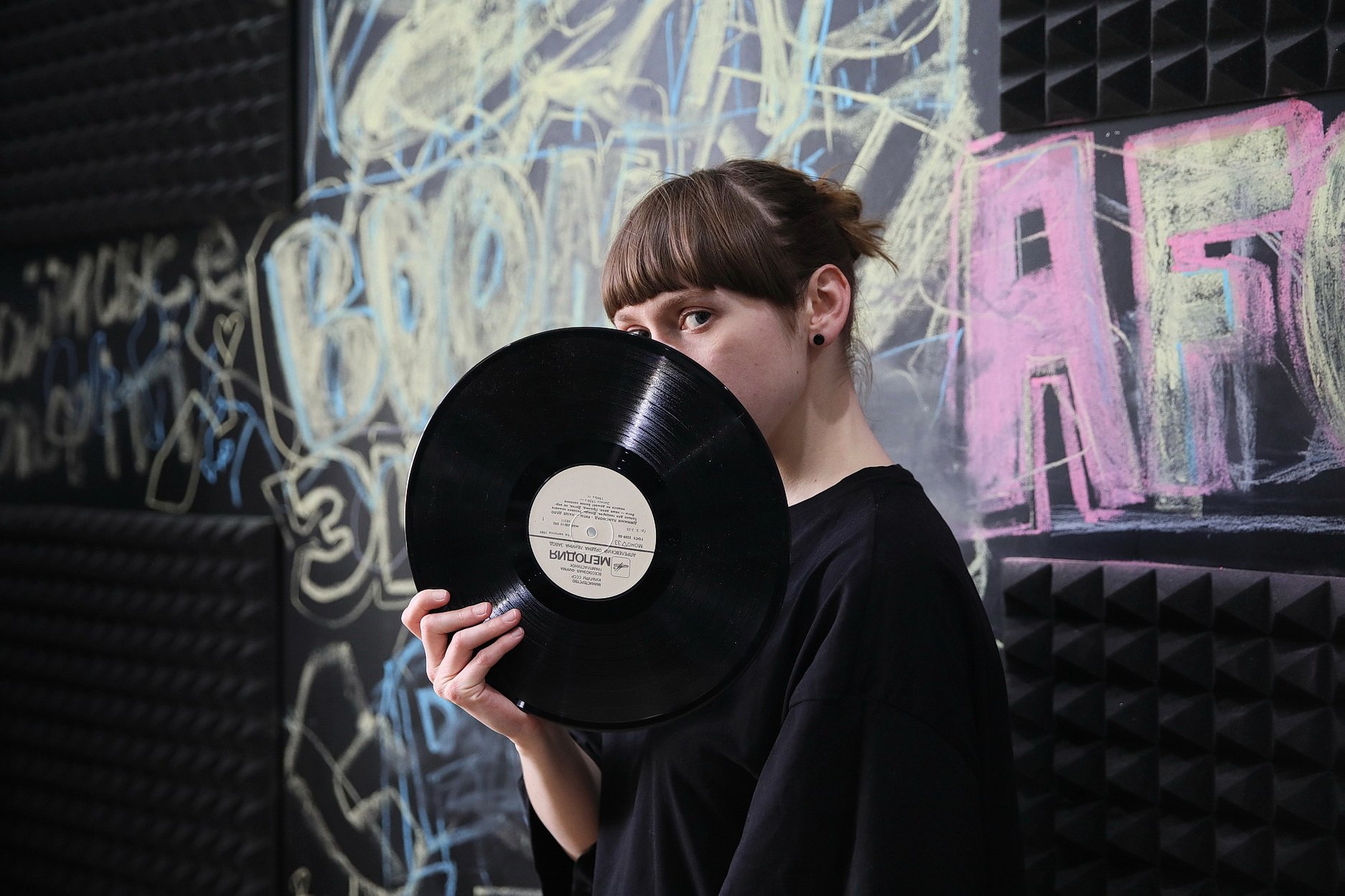English DJ and producer Beth Alana has spent several years in the world’s techno capital, Berlin, when the buzz about Kyiv’s emerging electronic music scene reached her ears.
“Ukraine is a bit of a myth in Berlin,” Alana, 22, told the Kyiv Post.
People coming back from Kyiv talked about how alternative and artistic the local creative community was. Because of what she saw on the news about post-Soviet Ukraine, Alana couldn’t believe the rumors at first.
Then the pandemic pretty much killed the nightlife in Berlin, while the DJ kept hearing that “things are still happening in Kyiv.”
A year into the pandemic, tired from having her career on pause, Alana packed up her equipment and records and moved to the Ukrainian capital.
“I don’t want to waste the best years of my life,” she says.
Music savior
Alana’s childhood wasn’t easy.
She was born in Newcastle, but her family moved to Germany when she was one. Because of her father’s employment in the military, the family moved often, both inside and outside of Germany. “I don’t feel like I’m from anywhere,” she says.
Her father’s military background and the trauma he received serving in several hot spots around the world made the family relationships tense and at times unhealthy.
Alana was looking for ways to escape home and feel included somewhere else. She soon found herself in a bad environment, and combined with her rebellious nature, it was a wild mix. As a teenager, she did poorly at school and got kicked out of class all the time. In her free time, she drew graffiti in public places and set things on fire.
“I was always in trouble,” she says. “I used to sit in the police car instead of being at school, and they would know me by my first name.”
A turning point came when Alana’s social worker recommended her for a charity program that taught difficult children music.
By then, 14-year-old Alana had grown quite a passion for music with a soft spot for electronic genres, attracted to the unconventional process of producing with machines instead of instruments. So when she first got behind the decks at one class, it was a truly special moment she could never imagine to be possible.
Alana quickly got good at mixing. The new skills gave her confidence and became her escape.
“I never wanted to do anything else since the first time I put my hands on the turntables,” she says.
From then on, she spent all her time with music and all her money on vinyls. There was no room for trouble any longer.
“I may have ended up in jail or addicted to drugs,” she says. “It sounds cliché, but music really saved my life.”
UK impact
Alana never spent much time in her home country, the United Kingdom, rarely making short trips to see family. But she says her parents gave her a truly British upbringing. “There was lots of tea,” she jokes.
There was also lots of UK music in the house – from her mother’s favorite David Bowie to her dad’s UK garage and a huge CD collection with all sorts of styles.
Growing up in Germany, Alana listened to techno a lot, but UK garage spoke to her heart like no other genre. Having originated in England in the 1990s, garage had its ups and downs eventually becoming a niche genre, which people often either love or hate, Alana says.
Garage still dominates Alana’s career now but she keeps her mixes and tracks versatile, also playing house and techno, and often merging styles together to reach a fresh sound.
After learning how to DJ as a teenager, Alana was dying to get her hands over a mixer but couldn’t afford one. To get some practice, she played at illegal raves in Germany and the UK for free.
Not only did the experience give her an opportunity to improve as a DJ, but also a sense of independence and self-respect. At 17, she dropped out of school and moved to Berlin to pursue her music career.
At first, Alana babysat kids during the day and spun records at parties at night.
She soon learned that Berlin’s electronic music arena is oversaturated. “Every second person in Berlin is a DJ,” she says.
She thought that bringing the new sound would be the key to success but quickly discovered that both the audience and the big clubs were very conventional. In a city that has been a home for techno for more than 20 years, there is a well-tried business model of making commercial music that most DJs and producers follow, Alana says. The community, meanwhile, has an elitist attitude towards anything that doesn’t follow suit.
“My music didn’t fit,” Alana says.
In line with her rebellious nature, the DJ didn’t conform but kept playing and producing the sound she loves. In 2020, she released her first EP “Phenomenon,” a rare record that blends garage with techno.
“I want to do something people haven’t done before,” she says. “All music can sound good together, it’s really just about how creative you want to be with it.”
Fresh start
After five years in Berlin, Alana relocated to Kyiv to pretty much start from scratch.
Just a bit over a month after moving, the DJ has already played at several bars and secret parties. She is debuting in another venue, Keller Bar, on May 16.
The Ukrainian capital’s nightlife appeared to be quite a contrast to Berlin – Alana calls it small, young, fresh and exciting.
Because the scene is still emerging, all the sides – promoters, DJs and the audience – are open to experiments. The club settings constantly transform, while the parties are often genre-diverse.
“There is no blueprint on how to make a perfect party,” Alana says. “Anything is possible.”
Kyiv has already started to make a name as the electronic music capital of Eastern Europe, while the industry is still working with little resources, mostly fueled by passion. With more investment, the city has a huge potential, according to the DJ.
“It’s the beginning of something much greater,” she says.
Alana hopes to collaborate with local musicians and Kyiv labels, and play at the city’s big clubs. Her other ambitious goal is opening an electronic music record store.
There are few such stores in Kyiv, which is why DJs are forced to order vinyls from abroad, overpaying for costly shipping, but “music is for everyone, and there shouldn’t be a heavy price tag,” Alana believes.
She also says that a record store experience, when visitors can dig through vinyls and listen to them on the spot, is one-of-a-kind, and “Kyiv deserves it.”
To avoid competition with other small retailers, Alana’s store will specialize in hard subgenres, currently an empty niche, she says.
The musician hopes that her future store will become a community hub for local and visiting DJs and the fans of electronic music, helping the industry further grow.
“I don’t want to be a foreigner to come and take advantage of Ukraine,” she says. “To help build and expand the scene as it’s going, it will be really quite an honor for me.”






